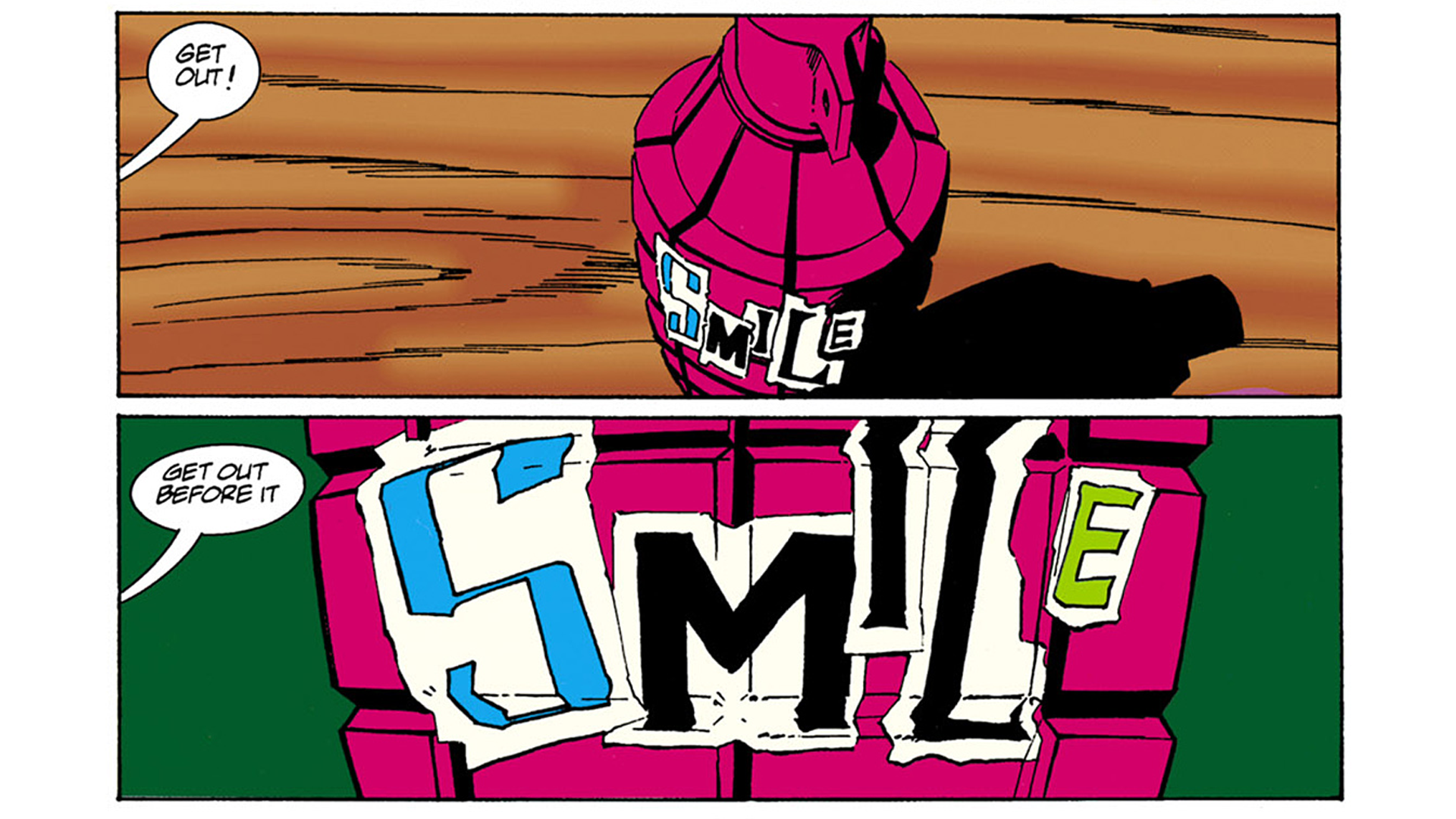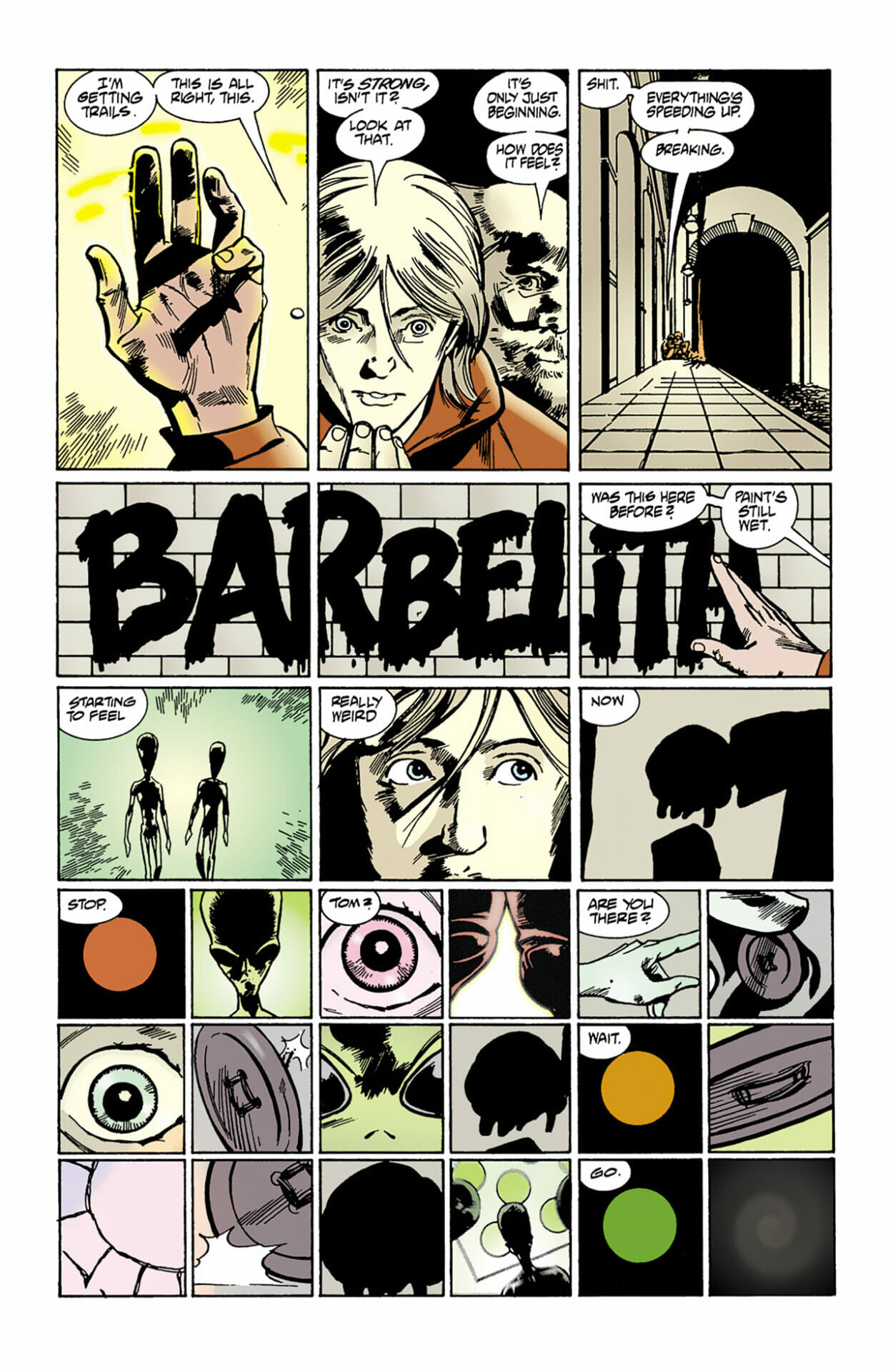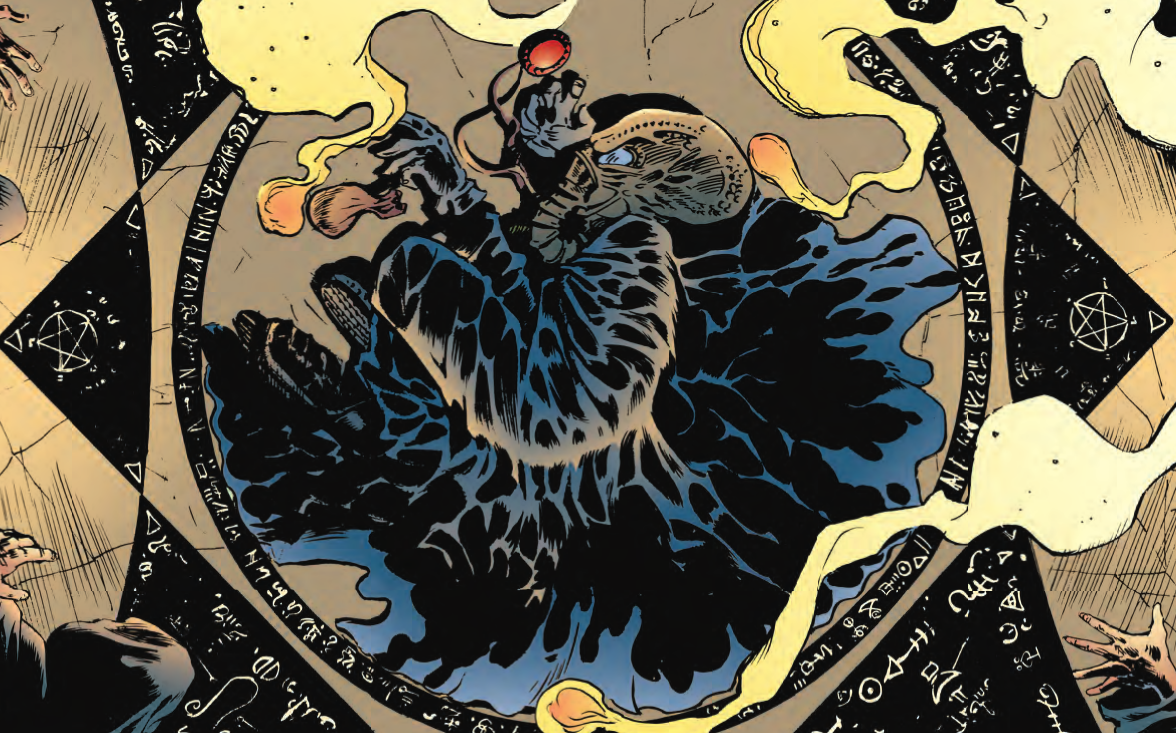
The revolutionary power of The Invisibles by Grant Morrison
Author
Year
Format
The Invisibles by Grant Morrison is a story with revolutionary power. Psychic magic, a potent alien drug, an idea yearning to change the world. The philosophy behind all the works of Grant Morrison (they/them) is that ideas can change reality. Raised by a conspiratorial father during the Cold War, Morrison was surrounded by magazines with images of nuclear apocalypses and radioactive deserts. Therefore, their only way to escape this imaginary horror was through comics. Especially the superhero stories, depicting worlds full of color and hope. In their essay Supergods, they say:
Before it was a Bomb, the Bomb was an Idea. Superman, however, was a Faster, Stronger, Better Idea.
Grant Morrison – Supergods
So, just as Oppenheimer has managed to translate an abstract idea into something concrete and destructive, Morrison is equally convinced that it is possible to actualize the hope of the superheroes in our world. The idea of The Invisibles derives from the certainty that comics can work as a spell, able to wake up hidden truths in the reader, like the Red Pill from The Matrix.
A mindblowing experience
In The Invisibles, Grant Morrison tells of a world where all conspiracies like UFOs, Man in Black, or Reptilians are real. A race of extradimensional Lovecraftian aliens who come from the “direction you can’t point,” the Archons, rule the world through mass media. Their weapon is flattening conformism, their absolute enemy is free-thinking. Over the centuries, they have controlled kings, politicians, and teachers. If you think your only destiny is to work, have children, go on vacation and die, they had already taken you. The Invisibles, on the other hand, is an organization that seeks to stop them and free humanity.

Their name comes from rule number one: “Big Brother is watching you. Become Invisible.” Among their ranks, we can find Lord Fanny, a Brazilian transgender witch. Jack Frost, the youngest member, a thug from Liverpool who may be the next incarnation of the Buddha. And King Mob, the one without rules, without limits: the revolutionary par excellence. Certainly the avatar of Grant Morrison themself.
The Invisibles use many ways to face the Archons, echoing Morrison’s personal philosophy and beliefs. For example, they use Hindu meditative techniques, tantric sex, and psychoactive drugs to lift the veil of our alleged reality. Namely, the fake reality molded by the Archons. Beyond this, they find BARBELITH, the so-called placenta of the universe. It connects our subjective reality to a realm outside our space-time horizon. It helps humans to realize their true nature buried beneath the subjective concept of self. Morrison described the origin of this word:
The word ‘BARBELITH’ is derived from a dream I had when I was about 20 or 21 and coincided with my first structured ‘magical’ experiences and a minor nervous breakdown.
Grant Morrison

A Path of Initiation
The Invisibles of Grant Morrison takes on a plot with a circular shape, where, ideally, the reader could read the first number as the last one. The reader will follow this strange group of crazy and unrestrained outsiders in adventures of many genres. Spy, horror, science fiction. Many references are to be found, from the paranoia of The Prisoner to the Beatles songs, from Icke‘s conspiracies about Lady D to Terence McKenna‘s psychedelia, in a colorful mix of pop and counterculture, religion and science, reality and fiction. The theme that gathers all of the storylines is the initiatory journey. Each character faces his own crisis and comes out transformed and evolved, like the reader.
The Invisibles is a comic for those who feel something is wrong, even though they cannot exactly tell what it is. They will feel like they could join the Invisibles and their revolution to change reality. To carry out a revolution, however, the readers have to carry on in the real world and in their own lives. And soon, everyone will have to choose: crushing, soul-rending conformity or radical, anarchic freedom?
Rolling Stone magazine’s put The Invisibles in the list of “The 50 Best Non-Superhero Graphic Novels“, citing its influence on later comic books writers Jonathan Hickman and Gerard Way.
Tag
Buy a ☕ for Hypercritic










